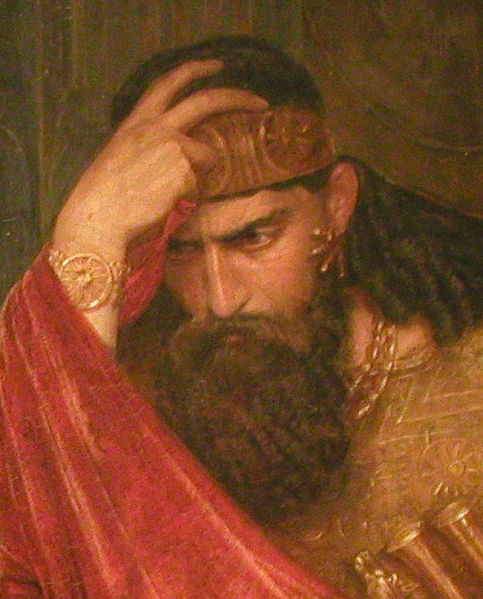In religion, a false prophet or pseudoprophet is a person who falsely claims the gift of prophecy or divine inspiration, or to speak for God, or who makes such claims for evil ends. Often, someone who is considered a "true prophet" by some people is simultaneously considered a "false prophet" by others, even within the same religion as the "prophet" in question. In a wider sense, it is anyone who, without having it, claims a special connection to the deity and sets him or herself up as a source of spirituality, as an authority, preacher, or teacher. Analogously, the term is sometimes applied outside religion to describe someone who fervently promotes a theory that the speaker thinks is false.
The Devil whispers to the Antichrist; detail from Sermons and Deeds of the Antichrist, Luca Signorelli, 1501, Orvieto Cathedral.
Fate of The False Prophet, Revelation 16, Beatus de Facundus, 1047
In religion, a prophecy is a message that has been communicated to a person by a supernatural entity. Prophecies are a feature of many cultures and belief systems and usually contain divine will or law, or preternatural knowledge, for example of future events. They can be revealed to the prophet in various ways depending on the religion and the story, such as visions, divination, or direct interaction with divine beings in physical form. Stories of prophetic deeds sometimes receive considerable attention and some have been known to survive for centuries through oral tradition or as religious texts.
16th century woodcut of a soothsayer delivering a prophecy to a king, deriving it from stars, fishes, and noises from the mountains
David and Saul, detail from an 1878 oil painting, Nationalmuseum, Stockholm
The revolution of 1831. As prophesied by that learned astrologer General Ikey Wether-Bridge





